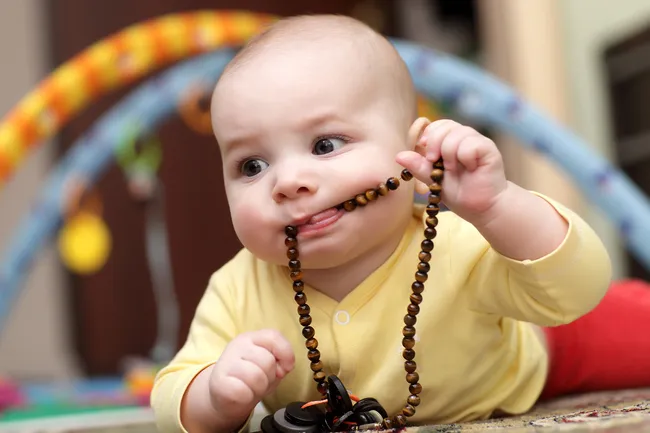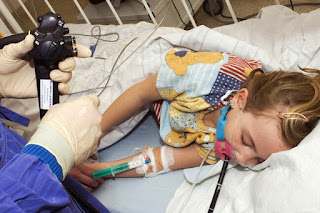
It’s Not Unusual
Thousands of children swallow foreign objects every year. While some things can be dangerous, it's not a serious problem in most cases. Kids ages 6 months to 3 years are most likely to swallow something they shouldn't.
What Gets Swallowed?
Kids in the U.S. are most likely to ingest coins, while in other countries, fish bones are a common offender. Other items doctors find include toys, buttons, earrings, rings, paper clips, game pieces, needles, pins, tacks, toothpicks, screws, and nails. Two things are especially dangerous: button batteries and magnets.
Signs of Trouble
Your child may show no symptoms at all after swallowing an odd item. But clues that something’s amiss can include coughing, drooling, bloody saliva, gagging, fever, refusing food, and vomiting. Pain in their neck, chest, or throat can be another sign. Go to the emergency room right away if your child has any of these. Call 911 if they have any trouble breathing, are wheezing or making any other strange sound when they breathe, or if they can't speak, cough, or cry.
Emergency: Magnets
The type used in toys can be especially strong. If your kid swallows more than one, they can be drawn to each other inside their body and damage their stomach or intestines. Blood poisoning is another possible and serious problem. If you think your child has ingested a magnet, call 911 right away.
Emergency: Button Batteries
These discs are a serious danger to children. If one gets stuck in the tube between their mouth and stomach (the esophagus), it can burn it within hours. If your child swallows one of these, go to the emergency room right away. If your child is older than 1 year, you can give 2 teaspoons of honey every 10 minutes until you get to the hospital to try to prevent injury. Once the object makes it to their stomach, the situation is less serious.
Other Times to Get Help
If the object is sharp or large, take them to the emergency room right away. Things that are 1 inch or bigger (including quarters) can lodge in their esophagus (the windpipe) and block breathing. Don’t try to fish the item out -- you could cause more damage. And don’t try to force vomiting.
The Swallow Test
If your child swallowed something small and is showing no signs of trouble, the doctor may suggest giving them a drink of water. If that goes down easily, she may recommend that you try a piece of bread. (Enzymes in saliva will help dissolve the bread if it sticks.) If either of these cause any problems, take your child to the emergency room.
If It's Not an Emergency
If your child has swallowed a smaller, blunt object and isn't showing any signs of trouble, doctors don’t always agree on the best course of action. Some say it's OK to watch your child’s stool and see if the object makes its way out. Most things kids swallow get safely to their stomachs and pass within a few days. Other doctors may recommend an X-ray or ultrasound to see where the item is.Treatment: In the Esophagus
If the object is stuck in this tube between the mouth and throat, the doctor may try to get it out with tools they'll put in through the mouth (endoscopically). In most cases, your child will get medicine to make them sleepy before the procedure. Another option is to give them drugs that will relax the muscles and let the item pass into the stomach.
Treatment: In the Stomach
If the object is large, sharp, or dangerous in another way and has moved past the esophagus and into the stomach, the doctor will probably try to take it out through the mouth. If that doesn't work, they may want to watch its movement with X-rays. The doctor may recommend an operation to remove the item if it’s sharp, doesn’t seem to be making its way out of their body, or might damage their intestines.

Δεν υπάρχουν σχόλια:
Δημοσίευση σχολίου